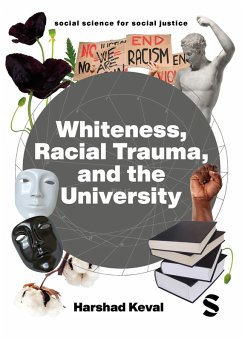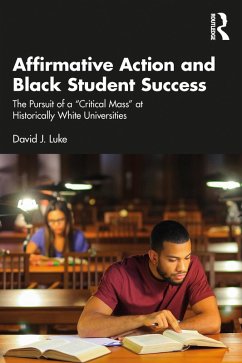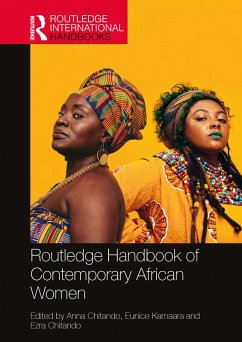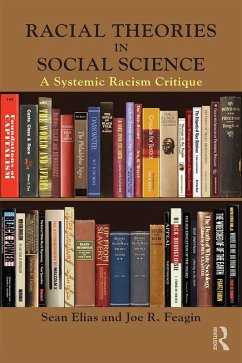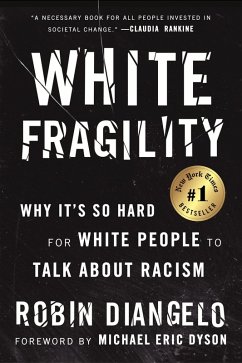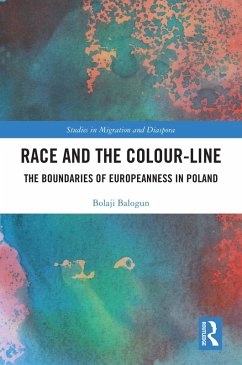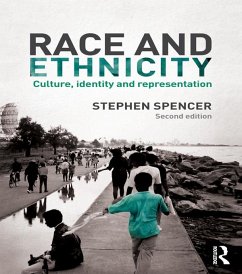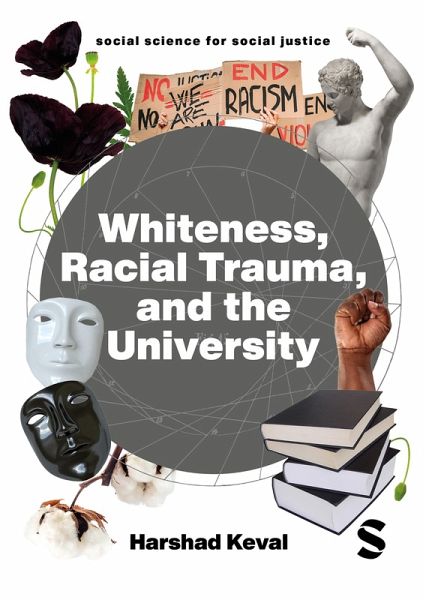
Whiteness, Racial Trauma, and the University (eBook, ePUB)
Experiencing Whiteness in the University
Versandkostenfrei!
Sofort per Download lieferbar
17,95 €
inkl. MwSt.
Weitere Ausgaben:

PAYBACK Punkte
9 °P sammeln!
"This is an inconvenient book, to use Berlant's term, bursting with generous readings of cultural and sociological criticism. Just what we need." - Yasmin Gunaratnam, Professor of Social Justice, Kings College London "An essential reading for all in Higher Education. The first in recent times to really present the state of UK HE from a truly liberatory perspective." - Melanie-Marie Haywood, Director of Education Development Service, Birmingham City UniversityUniversities are regarded as safe havens for knowledge production and the educational transformation of lives. There is, however, a long ...
"This is an inconvenient book, to use Berlant's term, bursting with generous readings of cultural and sociological criticism. Just what we need." - Yasmin Gunaratnam, Professor of Social Justice, Kings College London
"An essential reading for all in Higher Education. The first in recent times to really present the state of UK HE from a truly liberatory perspective." - Melanie-Marie Haywood, Director of Education Development Service, Birmingham City University
Universities are regarded as safe havens for knowledge production and the educational transformation of lives. There is, however, a long history of universities as sites of contestation where structures of hierarchical legitimacy are played out.
In response to the upsurge in global protests against racial violence and the criticism of colonial, racialised and Eurocentric forms of thinking, universities have adopted new roles as 'anti-racist' and 'decolonial' beacons of hope. This book unravels how such liberal progressive 'acts' hide a much deeper racialised logic of whiteness-framed structural narcissism, producing insidiously powerful and difficult to trace forms of racialised harm.
The Social Science for Social Justice series challenges the Ivory Tower of academia, providing a platform for academics, journalists, and activists of color to respond to pressing social issues.
"An essential reading for all in Higher Education. The first in recent times to really present the state of UK HE from a truly liberatory perspective." - Melanie-Marie Haywood, Director of Education Development Service, Birmingham City University
Universities are regarded as safe havens for knowledge production and the educational transformation of lives. There is, however, a long history of universities as sites of contestation where structures of hierarchical legitimacy are played out.
In response to the upsurge in global protests against racial violence and the criticism of colonial, racialised and Eurocentric forms of thinking, universities have adopted new roles as 'anti-racist' and 'decolonial' beacons of hope. This book unravels how such liberal progressive 'acts' hide a much deeper racialised logic of whiteness-framed structural narcissism, producing insidiously powerful and difficult to trace forms of racialised harm.
The Social Science for Social Justice series challenges the Ivory Tower of academia, providing a platform for academics, journalists, and activists of color to respond to pressing social issues.
Dieser Download kann aus rechtlichen Gründen nur mit Rechnungsadresse in A, D ausgeliefert werden.




